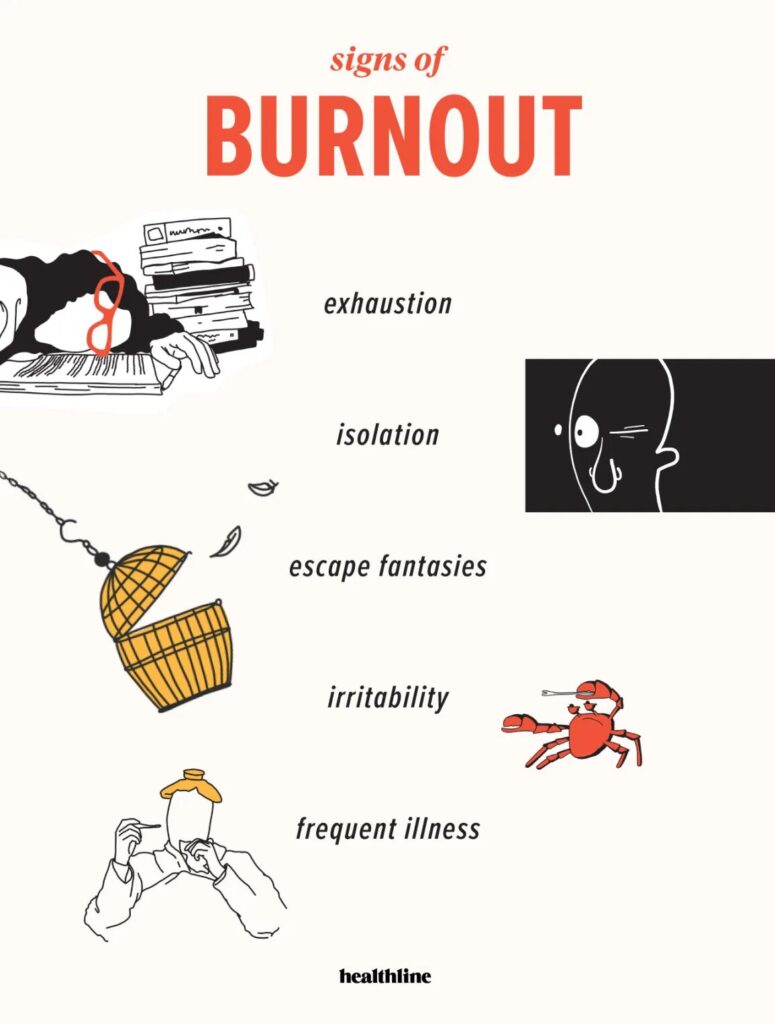A Quick Guide
Burnout may cast a shadow over our life, depleting our energy and enthusiasm, while we strive for achievement and fulfillment. This comprehensive article will reveal practical ways for overcoming burnout, addressing the multifaceted nature of the condition.
Understanding Burnout
Before getting into solutions, it’s critical to understand the complexities of burnout. Recognizing burnout as a complex interaction of physical, emotional, and mental exhaustion provides the groundwork for effective recovery. Understanding the symptoms of burnout is the first step towards recovery. Recognizing these signs is critical, as they range from persistent exhaustion and emotional detachment to behavioral changes such as procrastination.

Unveiling the Causes
To overcome burnout, it is critical to identify the underlying causes. Identifying the core triggers, whether they are work-related demands, personal expectations, or societal influences, is critical for targeted intervention. For instance, An entrepreneur may attribute his burnout to the relentless pressure to reach unrealistic business goals. Understanding the underlying reason may enable the individual to plan for change.
Strategies for Overcoming Burnout
Self-Care Practices
Establishing Limits: Setting clear limits is a necessary first step. To avoid overextension, learn to say ‘no’ and prioritize duties. For example, a freelance writer would begin saying ‘no’ to extra tasks in order to prioritize quality over quantity. This change would give the individual back control of their workload.
Meditation and mindfulness: Incorporating mindfulness activities can be life-changing. Participate in activities that improve mental and emotional health.
Seeking Support
Communication: It is critical to have open lines of communication. Share your emotions with those closest to you. A supportive conversation can sometimes make all the difference.
Expert Advice: Getting help from mental health workers is an active step. Therapists and counselors can provide specific coping strategies for burnout.
Lifestyle Changes
Prioritizing Sleep: Getting enough quality sleep is essential for overcoming burnout. Establish a consistent sleep schedule to aid in physical and mental recovery. For instance, a student who was feeling burdened by academic obligations prioritized a good night’s sleep. This modification improved their concentration and general well-being.
Balancing Work and Personal Life: It is critical to strike a healthy balance between work and personal life. Make time for leisure activities, relaxation, and socializing.
Cultivating Resilience
Adapting to Change
Resilience is the ability to recover from setbacks. Accepting change and perceiving problems as chances for progress are critical components of developing resilience.
Redefining Success
Shifting the success paradigm from external validation to internal fulfillment is a game changer. Individuals can connect their aims with their values by redefining success.
Navigating Towards Well-being
Well-being is a continuous process. Recognizing that the road to recovery from burnout takes ongoing work and self-reflection is critical for long-term well-being.
Key Takeaway
Overcoming burnout is a process of self-discovery and deliberate change. Individuals can restore their passion for life by recognizing the signs, identifying the core causes, and implementing specific solutions. Remember that well-being is an ongoing process, and each step you take toward overcoming burnout takes you closer to a more fulfilling and balanced life.
We hope you found this article useful in learning more about burnout and how you can overcome it.



 Healing Your Inner Child: A Short Guide
Healing Your Inner Child: A Short Guide  What You Need to Know About Trauma & its effects
What You Need to Know About Trauma & its effects  Dealing with a Narcissistic Parent: Strategies and Support
Dealing with a Narcissistic Parent: Strategies and Support  Understanding the MBTI Personality Types
Understanding the MBTI Personality Types  Understanding the Big Five Personality Traits
Understanding the Big Five Personality Traits  Body Image: what it entails and how it affects you
Body Image: what it entails and how it affects you